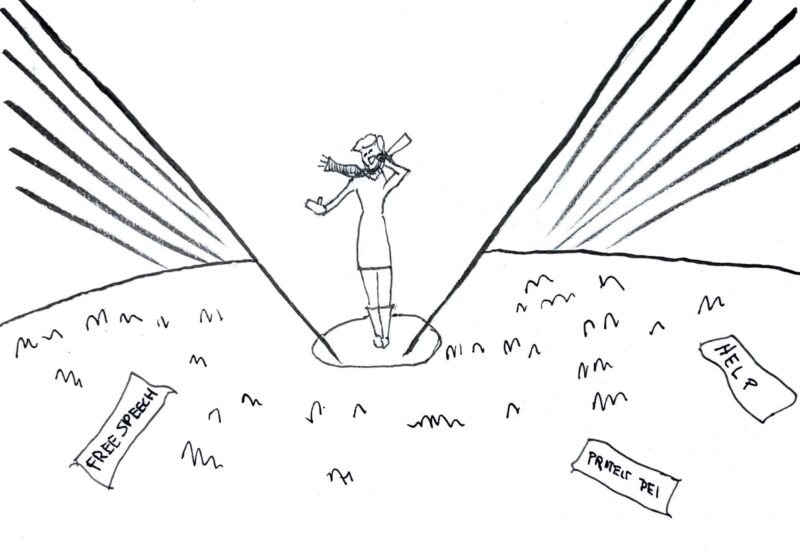Douglass and Wilson Commons went dark from 8:30 to 9:30 p.m. this past Saturday in honor of Earth Hour, a multinational movement to raise awareness about light pollution and climate change.
The event was put together by the Astronomy Club in hopes of gathering support for a lighting system throughout campus that is more environmentally conscious. It also aimed to inform students of the dangers of climate change and the need for sustainability now.
“Generally, you don’t know how you don’t really need all of these lights until we actually turn them off,” said Tri Nguyen, the club’s vice president. “We’re trying to make it a tradition every year.”
A talk at the event by Professor Lee Murray highlighted how students could do their part.
“Unfortunately, we’re in for an unavoidable addition of change even if we were to cease all emissions today,” Murray said. “Collective action is important and a must, but there are things that we as individuals can do. The two biggest on an individual action would be reducing beef intake and flying fewer miles.”
After the talk, students were given an option to sign a pledge to lead a more sustainable lifestyle and to make an effort to be more environmentally friendly with energy.
While After Hours performed, co-sponsoring clubs set up informational boards about other environmental concerns.
Some of these clubs included the Society of Undergraduate Public Health Students, which discussed the health side of environmental risk factors. GreenSpace told students about how urban city lights form a glow around a city that can affect animals. Baby turtles often mistaken this glow for the moon and end up dying as they travel toward the city instead of the ocean.
Outside of Wilson Commons, the Astronomy Club set up telescopes so students could stargaze. There was a telescope pointed at the moon and another toward a star belt.
“This hour was actually started initially by amateur astronomers because of light pollution and how it dulls out the night sky,” sophomore Steven Spiewak, the Astronomy Club’s publicist, said. “You can’t really see the stars or anything. So, with turning off nonessential lights, not only does it help with energy sustainability and in the long-term climate change, but it gives you a better perspective on our personal universe.”
Many attendees enjoyed the event and agreed it was informative. Some said it motivated them to take action.
“It’s important to bring awareness of issues to light pollution and I think this year was really great because there was a speaker talking about climate change and all of these other environmental issues,” co-president of Grassroots and senior Gabrielle Scullard said. “Earth Hour is this international movement to turn off the lights from 8:30 to 9:30 p.m. on a particular day. But, it’s bigger than just light pollution and energy conservation. It’s thinking about how our actions and everyday things that we don’t think about affect everything.”
The Astronomy Club hopes to continue to up the ante every year by turning off more non-essential and ornamental lights off across campus. While it is hard to turn off all of the lights because of safety reasons, the group’s main goal for future years is to get the lights on the dome of Rush Rhees to shut off during Earth Hour.
“You can tie it to Paris, where they turn off the spotlights on the Eiffel Tower for this hour. That’s a huge symbol for France and their national pride,” Spiewak said. “We feel like the dome of Rush Rhees is a symbol for the University of Rochester. If we get those lights turned off, it will send a powerful message from the entire university community.”



